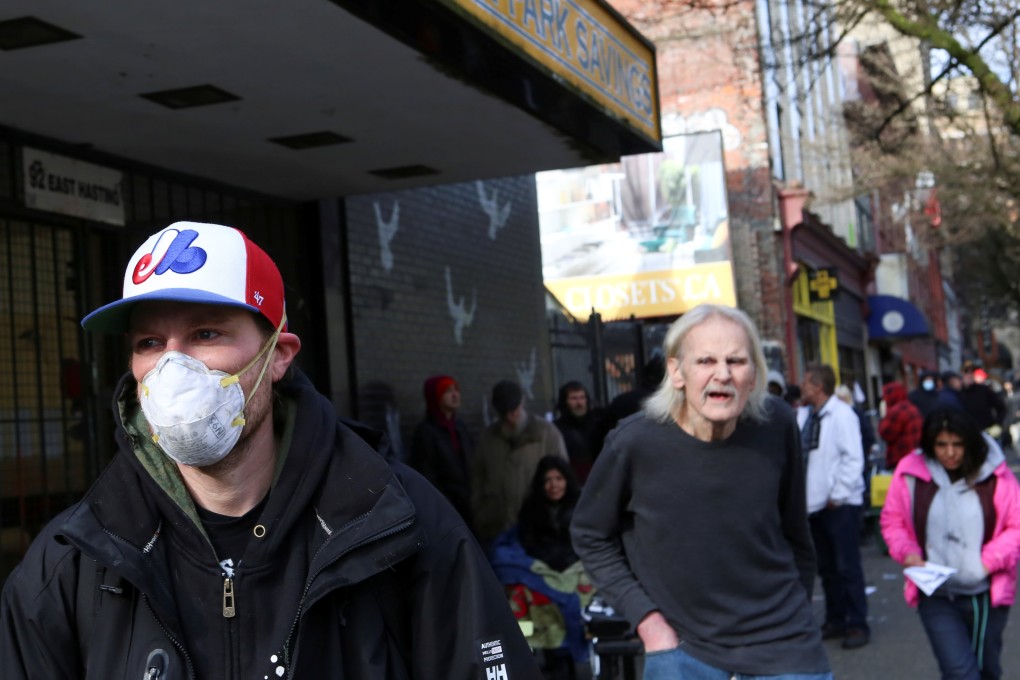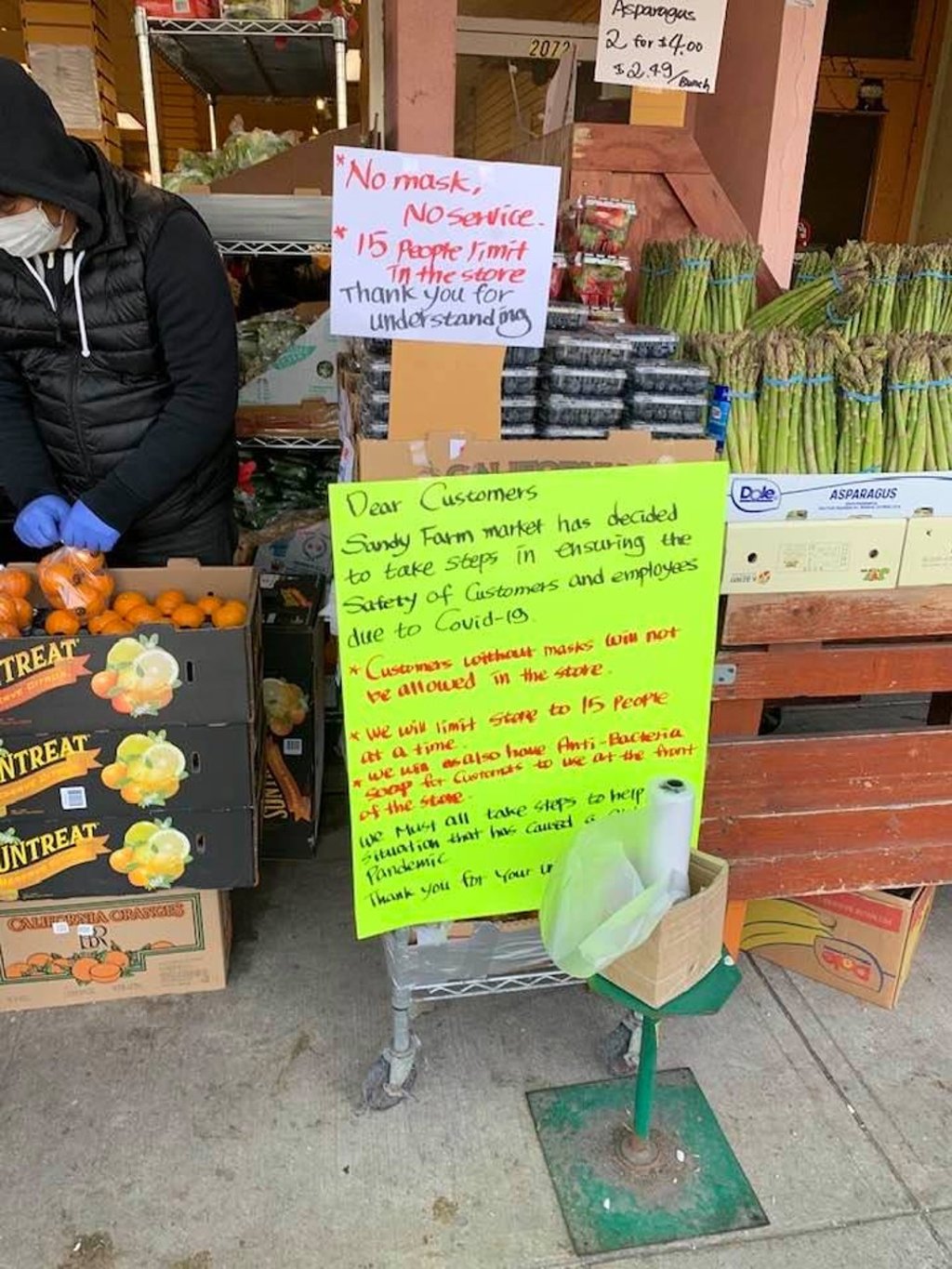‘No mask, no service’: In Vancouver, anti-coronavirus face coverings go mainstream, as fears grow over shortages for health workers
- Once common only in Asian communities, mask wearing is becoming a more regular sight in broader Vancouver
- But British Columbia authorities deter general public usage, with the provincial health officer warning of ‘tenuous’ supplies for health staff

The sign out the front of the Sandy Farm Market grocery store in the well-heeled Vancouver neighbourhood of Kerrisdale was clear in its message: “No mask, no service”.
An assistant stood blocking the popular shop’s entranceway, standing behind a makeshift bouncer’s lectern made of fruit boxes, trimming Brussels sprouts as she waved customers through or barred entry with a shake of her head.
How was the new anti-coronavirus policy working out? “It’s fine,” she said. “Some people are complaining. They ask ‘are you against Westerners?’”
She rolled her eyes hard.

The policy at Sandy Farm, run by Korean immigrants, reflects a new reality in Vancouver, where mask wearing is becoming increasingly mainstream, residents trade tips on making them, and authorities crack down on the resale of commercial versions.
Mask wearing as an anti-coronavirus precaution has been relatively common in the region’s Asian communities for a couple of months, and recently appears to have caught on beyond.